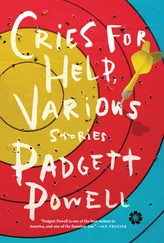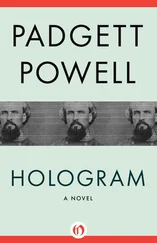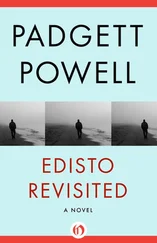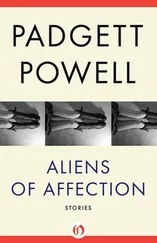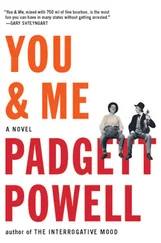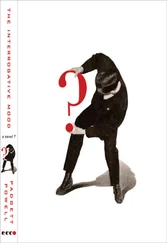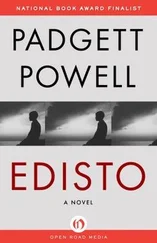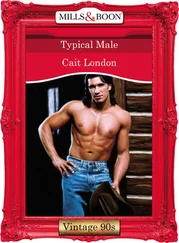After the baby was born and the bloom wore off the baby, which bloom wore off proportionately to his washing off the baby’s cream-bespinached bottom, he left his bean-eating ineffably attractive past-besmirched wife and Raphaelic infant and rented a $100 room and got a typewriter and decided to write it all down. The whole thing. How … well, the entire affair, and then some. And a lot of stuff before that.
It went well. There was not enough paper or beer to keep him going. It got cold and he started burning the bond paper to keep warm and kept the beer outside to keep it cold. He burned paper from the bottom of the ream and typed on it from the top, and when the two dwindling supplies met he still had beer and was conscious. He would not type on an empty platen — a fair gesture where art and soul were concerned, perhaps, but it was bad for a typewriter to type on an empty platen. The money he had left was not enough for another ream of paper but was enough for another case of beer. He got that and many newspapers — financial ones were the best paper value — and burned them and drank beer and thought the rest of his novel, as he was calling it, through.
It was good, he knew. Writing the rest of it would be no problem. Two days later, it was not good. There was no point in finishing it. He began burning the extant portion, which relieved the demand on fuel money and released funds for more beer. It got even colder.
He called on a woman he knew and they went out. They went back to her place, where Mr. Elliot, expecting her to be anticipating the whole hog, took his clothes off in her kitchen and passed out. The woman called his wife, who came over in the morning. They both studied Mr. Elliot, fetally coiled on the linoleum.
“I’m sorry,” Mrs. Elliot said.
“You should be,” the woman said. She was black and she was confused by all this in a way she would not have been if Mr. Elliot had been on her floor and black. “I didn’t mean it like that,” she added. “My name’s Cleveland.”
Mrs. Elliot wondered what she did mean, and Cleveland wondered what she had meant, too. Mrs. Elliot did not want to find out. She knew enough to let a black woman named Cleveland with someone else’s white husband passed out on her kitchen floor think whatever ill she wanted. Cleveland, for her part, though, wanted to find out what she had meant by her own rudeness.
“Let’s have some coffee. He hasn’t blocked the stove.” Mr. Elliot whimpered and his hands quivered. “He looks like a dog dreaming.” They both laughed.
Cleveland put condensed milk and more sugar — five teaspoons — in her coffee than Mrs. Elliot thought physically possible. Will it dissolve? she wondered, sipping hers black. She declined additives herself. She sat there in a state of mind that may be fairly and accurately abridged weirded out. She could not think of appropriate things. That was the fault, or the price, she thought, of being there at all when you should have called an ambulance or the police on your alleged husband and got out. She had imprudently ignored judgment and the madly whispering voice of sense and sat down for coffee. “I’ll need no sugar, thanks,” she said to Cleveland, thinking: Yours will somehow sweeten mine.
Mrs. Elliot hoped several things while Cleveland finished up her thick stirring. She hoped Mr. Elliot would not come to. She hoped she would not ask, or find out, what he was doing there. She hoped this Cleveland had better sense than to ask questions herself. She wanted to just sit there and have coffee in the sunny little dining room like a couple of housewives in their mid-morning lull.
“What is that?” Cleveland asked.
“What?”
“What you’re humming.”
“Was I humming?”
“I know the song but can’t think of it.”
“I didn’t know I was humming.”
“Ah,” Cleveland said. “Are you in school?”
“Yes.”
“Which one?”
Mrs. Elliot told her. Cleveland was a graduate student at the same school. In the same department in which Mrs. Elliot was an undergraduate and in which Mr. Elliot taught. This explained their sipping coffee together a room away from where Mr. Elliot whimpered naked on the floor.
“Well,” Cleveland said. “Enough of that.” Then she announced, “You are beautiful,” and slapped her knee.
This should have been odd but was not. Mr. Elliot had talked some before retiring, it would seem. It made perfect sense. Mrs. Elliot’s beauty was something she no longer was self-conscious about. She had never used it, but she had been for a while embarrassed by it and tried to slough it off. Now she accepted it. Cleveland accepted it. How had her soft-bellied passed-out husband had the grace to go rutting on an intelligent woman?
Cleveland stood up and stretched. “I think I have tendonitis, or something,” she said, and sat back down.
“Did you play volleyball?” Mrs. Elliot asked.
“No. Tall enough, but didn’t. It wasn’t …”
“Yeah.”
“How’d you hook up with him in there?”
“He was cute.”
“You want more coffee?”
“Yes.”
When Cleveland came back with the coffee she said, “Safe and sound. I’ll hand you that, he’s cute.”
“He’s cute.”
They both laughed again.
“God Almighty,” Cleveland said.
“Do I leave, try to take him, or what?”
“Just leave. I will, too. He’ll get up on his own self.”
Mrs. Elliot said, “You’ve been … correct.”
Cleveland looked at her and said nothing.
Mr. Elliot after that was his own master. He was in control. He was prescribed some medicine designed to address polar-brain disorder, which one doctor said he had, and some other medicine to block beta waves, which another doctor, laughing at the first, said he had too many of. He took the one medicine, then the other, then both, then neither, and went back to beer.
When he moved back in, which he did in a straight line from the linoleum floor of Cleveland’s kitchen, saying to Mrs. Elliot only “Whew. Rough night,” and nothing of the week he’d been gone before that, writing his novel and burning it, both before and after it was on the page, he delivered himself of a speech.
“I will be a good husband,” he said. “And observe these rudiments of good-husband behavior. I will—” He stopped and said, “Here,” taking from his jacket — which he noticed at that moment he had never seen before, how remarkably well it fit, and it appeared to be well made — a note. He handed the note to Mrs. Elliot. It said, in pencil:
I WILL NOT
wash dishes
“ diapers
vacuum house
sweep “
mind baby
feed “
clean “ ’s ass
give dinner parties
go to “ “
entertain in-laws
visit “
tolerate “
talk on
phone with “
receive mail at this address
Mrs. Elliot read the list and walked to him and kissed Mr. Elliot, which he did not expect.
“Be as bad as you can be, honey,” she said to him. “It won’t amount to much.” He could feel and taste her lipstick.
Mr. Elliot’s astonishment was not as large or long-lasting as he felt it should have been. His first thought: All women are whores! Mrs. Elliot in that little nick of time had left the room and was coming back through it with one arm full of baby and one arm full of laundry. She smiled on her way through.
The smile was a guileless, almost radiant, but finally just naturally pleasant expression on the face which was the most beautiful face he had ever seen at close range to conceal the worst past he had ever fathomed at long range. What was she?
Читать дальше

